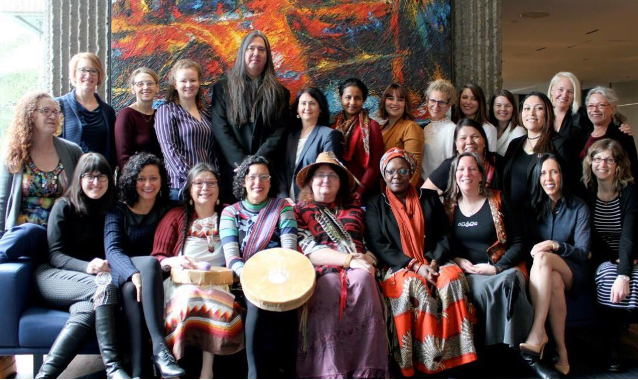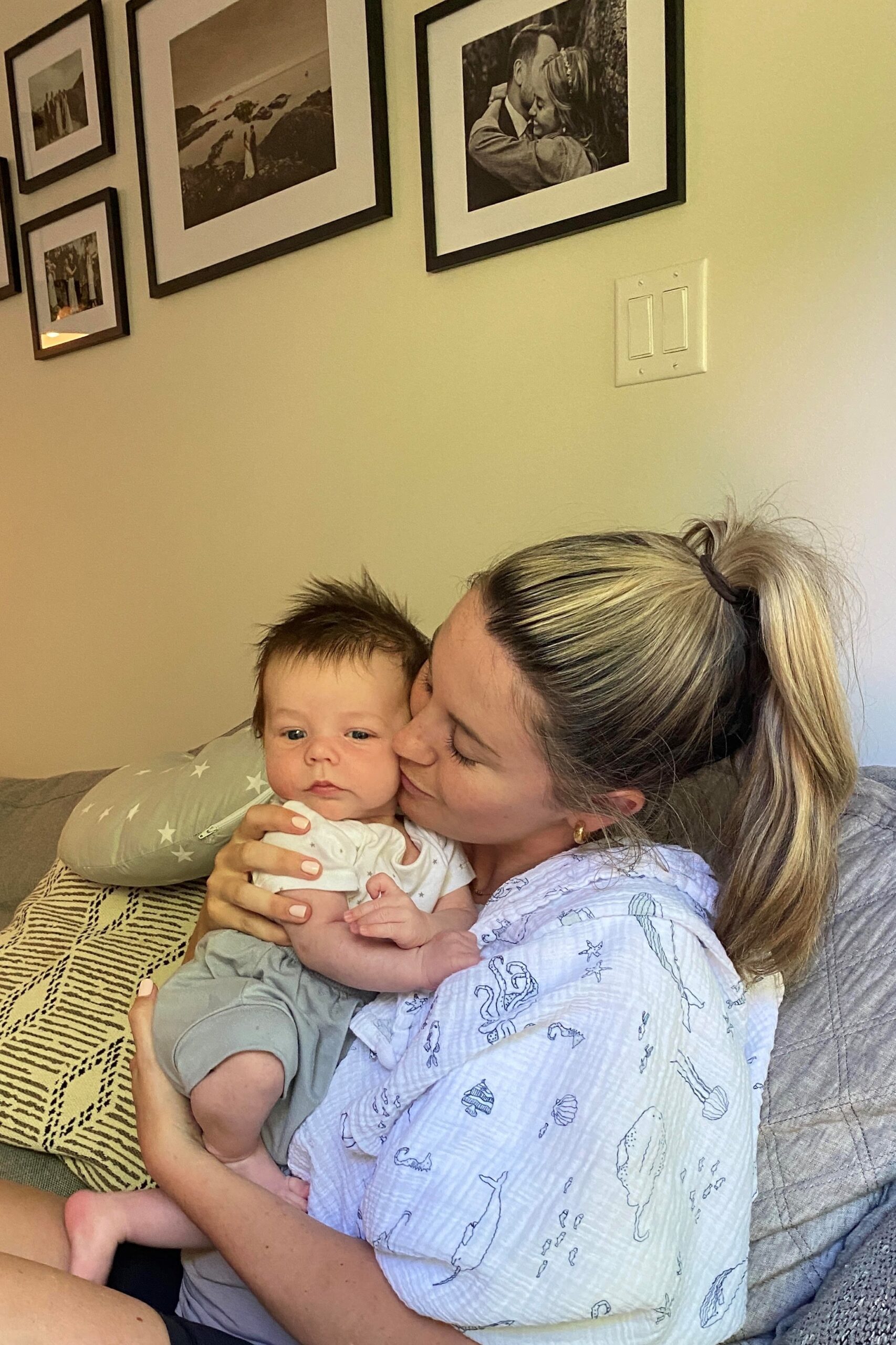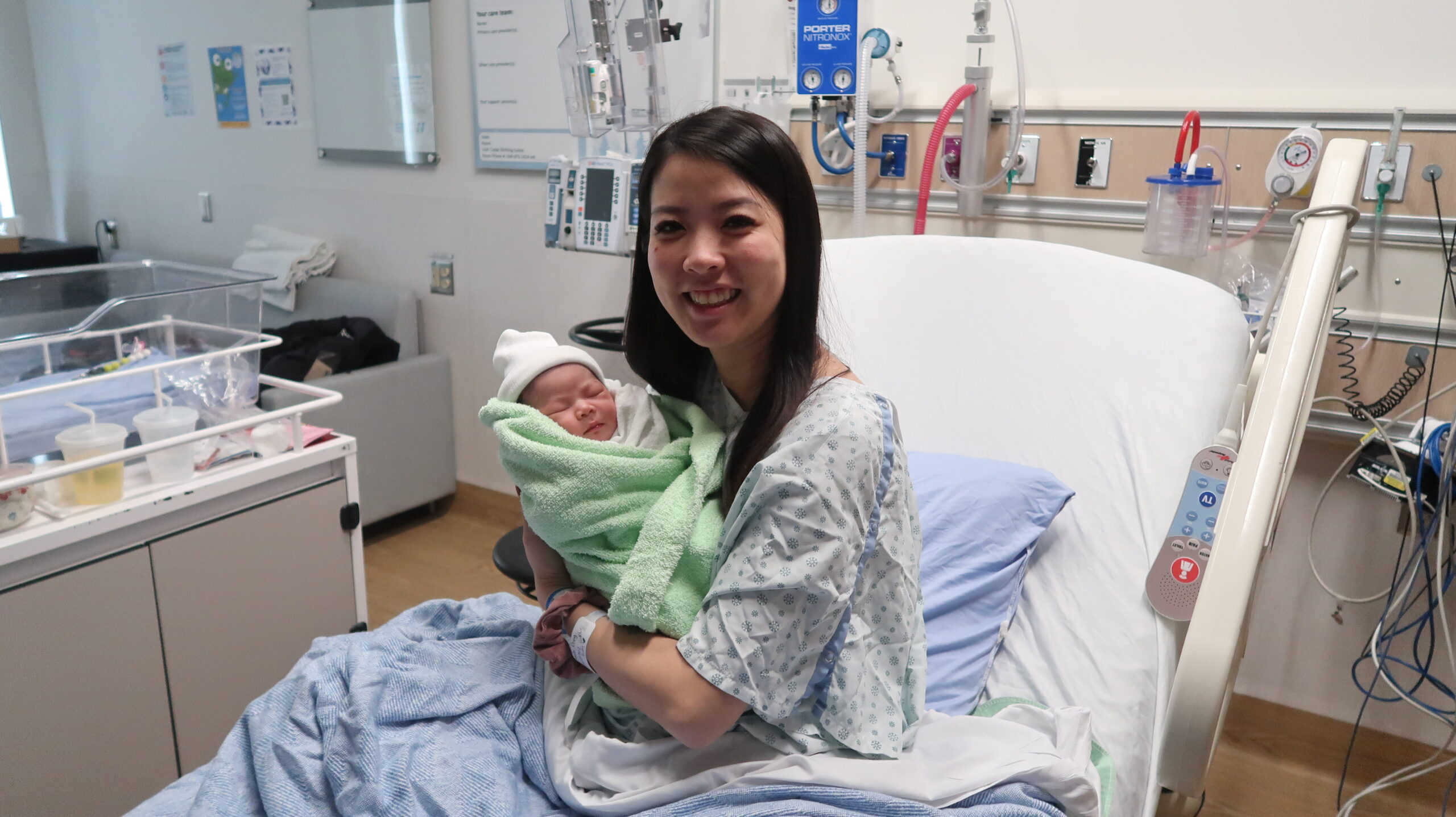
Dr. Angela Kaida is pictured above, front row, second from the left.
In recognition of International Day of Women and Girls in Science, we are profiling women researchers who are doing important work in women’s health. We asked these researchers a few questions including Dr. Angela Kaida, who is currently researching the impacts of COVID-19 based on age, sex, and gender through the COVID-19 RESPPONSE study.
Tell us about yourself.
I am an Associate Professor and epidemiologist in the Faculty of Health Sciences at Simon Fraser University. I hold a Canada Research Chair in Global Perspectives on HIV and Sexual and Reproductive Health.
Provide a description of your latest research project.
I’m currently working on several research projects, but I’ll highlight two in particular — the first is the WHRI’s COVID-19 RESPPONSE* study where we are recruiting individuals (25-69 years) from BC to understand the impacts of COVID-19 on their lives, stratified by age, sex, and gender. I am leading research questions related to COVID-19 impacts on the social determinants of health, including income, employment, food insecurity, housing insecurity, and caregiving responsibilities. I am also leading questions examining the specific impacts among people living with HIV in BC.
A second exciting study is the BC-CARMA CHIWOS Collaboration (BCC3) research project where we have joined two established cohort studies of women living with HIV (one clinical and one community-based) to better understand and support women’s healthy aging. Our goal is to examine and understand how different biomedical, clinical, and socio-structural factors may interact to affect aging. The BCC3 study includes women living with HIV as core members of the research team and is grounded in community-based research principles. To learn more, please visit our website: HIVhearme.ca.
Why did you decide to focus your work on women’s health research?
I decided to focus my work on research that was centred on principles of health equity and social justice. I learned very early through my own experiences and those around me that women’s health priorities are often neglected, poorly examined, and regularly dismissed. This must change. I felt that I could contribute to the change by working with community leaders to provide robust equity-oriented scientific evidence for the creation of more equitable policies and programming. I found a great research community in women’s health research, where women’s health research is understood as essential for healthy women, families, communities, and society.
What are your thoughts on the bias in women’s health research showcased in The Research Divide, including:
- Women’s health research is funded less often, for shorter terms, and lower funding amounts.
- Women researchers are less likely to receive funding than men
- Women academics have lower salaries, receive less institutional funding opportunities, and are underrepresented in senior positions.
- Women are less visible in academia (publications, symposia, conferences, research prizes)
Years of data show us that women’s health research is funded less often and at lower funding levels. This is a function of sexism and is linked to how we devalue women’s lives, women’s priorities, and women’s expertise. To counter this, we need more venues to continue showcasing the excellent work of women’s health researchers and the incredible contributions to improving women’s health as well as the health of children, families, and whole communities.
Gender is one dimension of this bias. When gender intersects with additional identities and social positions, these biases are often exacerbated.
As a BIPOC cis-woman researcher, I am familiar with these biases on a personal and professional level. I have received incredibly racist and sexist reviews of my research proposals that go far beyond critiquing the scientific merit of the proposed work. A reviewer of my recent CIHR grant application examining the gendered impacts of COVID-19 in South Africa asked “why study a country on the African continent when European and North American countries have higher rates of infection?”. The reviewer went on to assess our long-standing, highly productive research team which included leading South African female scientists and community leaders as having a “Weak” ability to conduct the proposed research and a “Weak to Fair track record of research”.
I know that I am not alone on the receiving end of such nonsense reviews. I have spoken to many other BIPOC researchers who have shared similar experiences. The recent CIHR funding report showed that while women researchers have had growing funding success in funding competitions, the same cannot be said for women of colour. This is a serious structural inequity that is depriving us from the best science and by extension, the opportunity to create better policies and programs for a more equitable world.
What impact do you intend to have on women’s health with your research?
I want all women living with HIV to have the healthiest sexual and reproductive lives possible, as defined by them. I hope that my research contributes to that goal in a good way.
You can double your impact this February and give researchers like Dr. Kaida the support they deserve to study the unique health needs of women. From now until February 28, your gifts to the Women’s Health Research Fund will be matched by the Auxiliary to BC Women’s Hospital + Health Centre, up to $27,500. This could mean two fully-funded Catalyst Grant awards to kick-start the research process and support the next generation of women’s health researchers in the province.
BC Women’s Health Foundation is BC’s largest non-profit organization dedicated to advancing the full spectrum of women’s health. The information shared is intended to educate, inform, and point readers to credible sources. It is not intended to substitute professional medical advice.



